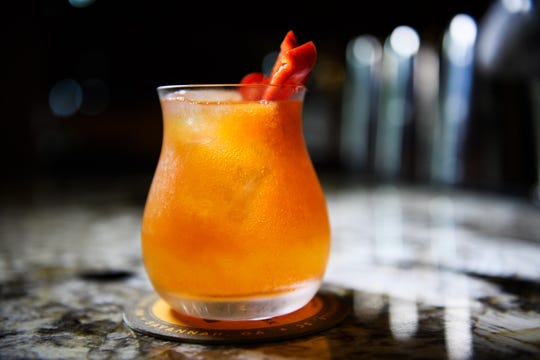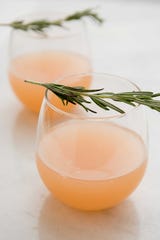Q: Why are restaurants allowed to advertise “cocktails” on their websites and menus when clearly they do not have a full-bar license? These offerings should be called “mocktails” or “wine-based cocktails!" I feel deceived. — Sincerely, Sandy M.
A: Sandy, I share your pain. Nothing ruins Taco Tuesday like ordering a margarita only to have a glass of syrupy wine water delivered.
Sadly, there's not much recourse.
While the Department of Business and Professional Regulation does enforce so-called "truth in menu" laws — rules that ensure your Gulf snapper is indeed Gulf snapper and not Asian-farmed tilapia — those regulations don't apply to what can or can't be called a cocktail. Cocktails must contain alcohol, yes, but the strength of that alcohol doesn't matter.
As the department's communications director Patrick Fargason pointed out via email, "the term 'cocktail' isn't defined in the Beverage Law.
"According to DBPR’s Division of Alcoholic Beverages and Tobacco, simply calling something a 'cocktail' wouldn't rise to the level of misrepresentation any more than calling something Butterbeer without there being any beer present would."
 The "Melon Dramatic" is a nonalcoholic mocktail served at Husk in Greenville, South Carolina. (Photo: JOSH MORGAN/Staff)
The "Melon Dramatic" is a nonalcoholic mocktail served at Husk in Greenville, South Carolina. (Photo: JOSH MORGAN/Staff)
There are, however, some basi1. Drink at big restaurants. Most restaurants must have more than 150 seats (inside and out count) in order to secure a liquor license. If you're at a restaurant with fewer than 150 seats, then it probably only has a beer/wine license — hence the wine-based substitutions. That said, it's not impossible to be small and sell liquor. The owner of Nevermind in Cape Coral, for example, has a full-liquor license purchased through Florida's liquor license lottery. That allows him to sell full-test gin, rum, you-name-it, even though he only has a few-dozen seats.
 Grapefruit rosemary mocktail (Photo: Courtesy Henry Ford Health System)
Grapefruit rosemary mocktail (Photo: Courtesy Henry Ford Health System)
2. Look for a bar. If a restaurant has a full-liquor license, that's a huge moneymaker. They'll want you to know about it. You will almost always find a traditional bar setup at a full-liquor restaurant; bottles on display alongside draft taps and the like. Don't see a bar? You're probably getting a wine-based cocktail.
3. Ask. If a little side-street taqueria is offering margaritas, or if a mom-and-pop diner has Bloody Marys on the brunch menu, I will ask the server: Is it made with tequila/vodka or with wine-based liquor? Servers will almost always tell you the truth. If they're unclear, ask a manager. I'd much rather have a mimosa than some unexpected wine-based cocktail that will sit unfinished.

No comments:
Post a Comment